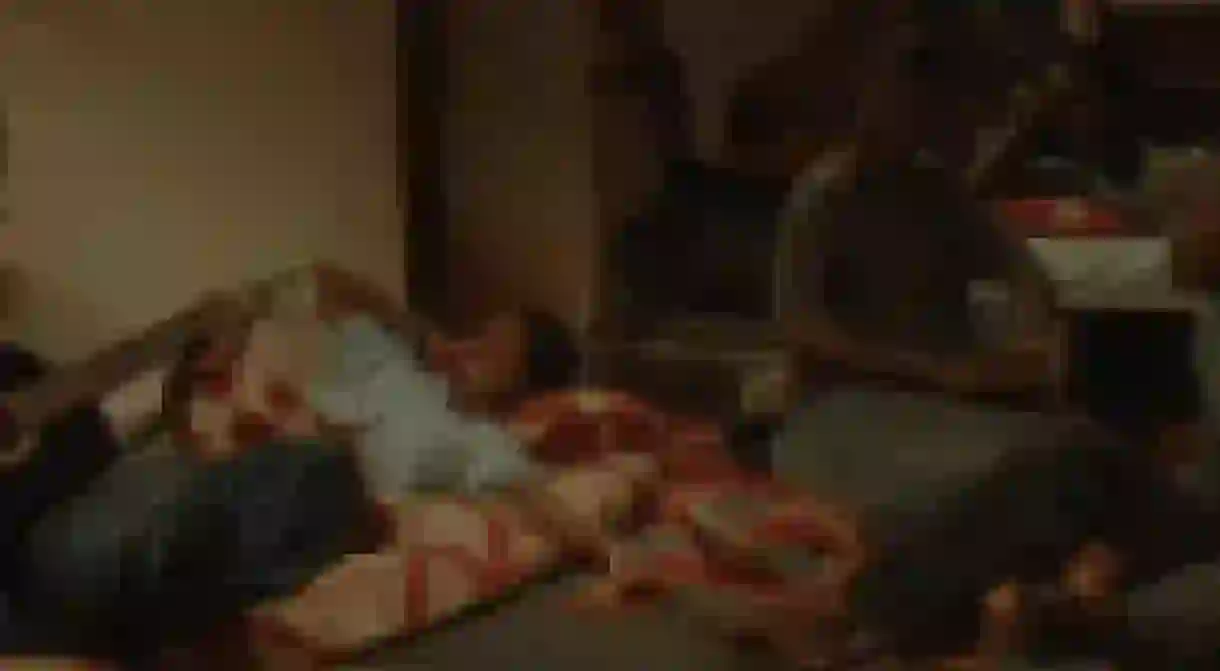The Devastating Beauty of 'Timbuktu'

Written and directed by the Mauritanian filmmaker Abderrahmane Sissako, Timbuktu is set in the Mali city in 2012 when an occupying Islamist group proclaimed it part of a new Islamic state.
Sissako rushed to make the movie so that it would be timely, though with the events of October 2014 and the again worsening situation in the Sahara, it functioned as a sad reminder that Mali and its neighbors, and also the Levant, are unable to contain an ideology that is somehow immune to the sage words of local Muslim leaders, to the teary pleas of a father whose daughter will be orphaned when he’s killed, or to the clandestine music that haunts the night air.
The movie intertwines the moments when Islamic jihadists impose their new order on the inhabitants of Timbuktu with the story of Kidane (Ibrahim Ahmed dit Pino), a poor cattle herder who lives a simple life under a tent with his wife (Toulou Kiki) and daughter.
Timbuktu’s polyglot and multi-racial inhabitants quietly watch as their daily pleasures and physical movements are curtailed by French, Arabic, and English-speaking outsiders who claim to represent a “better” Islam, all while hypocritically smoking outlawed cigarettes, hitting on married women, and taking gri-gris (amulets) to protect themselves against bullets.
Music goes underground. Men’s pant legs are to be shortened. Women’s feet, hands, and heads are covered. People are no longer allowed to sit outside or circulate at night. The only person permitted to wander about head uncovered, red high-heels on, singing audibly is a crazy woman.
Sissako’s other films have ranged from the autobiographical (“Life on Earth,” “Waiting for Happiness“) to the critical (“Bamako” and “8” ), subtly paying attention to local expressions of culture, religion, and disappointment.
His dialogues are often gaunt in words but pregnant in meaning. The shots usually move slowly, observing the rituals of daily life in village or coastal landscapes. Timbuktu, however, includes one of the most breathtaking scenes, showing how much Sissako’s style has changed in the intervening six years. With the playing of soccer forbidden along with every other worldly joy, a group of young Malian boys fill a sandy space, using it as a soccer field. Dressed in their colorful jerseys, some with soccer shoes, others barefoot, they play soccer with an invisible ball. They take shots, pass the ball, steal from the other team, and throw their arms out in victory to constitute a ballet of imagined games.
Later, a similarly striking scene follows the graceful movements of a Tunisian jihadist as he dances to music that plays only in his head. Malian singer Fatoumata Diawara lends her voice and body to the film, showing how small acts of resistance make up the way Timbuktu’s population tries to survive the rapid changes taking place in their city.
After viewing the film at the Abu Dhabi Film Festival, the audience sat stunned, still trying to soak in the sadness of the story and the profound beauty of such scenes, unable to ask Sissako questions when he came forward for a Q&A session. It was reminiscent of Sissako’s own reaction when he was asked about the ultimate meaning of the film in May when the film premiered at the Cannes Film Festival. Sitting with the cast of actors in front of the international press, the director pushed the microphone away to hide his face as he burst into tears when asked about the film, which he had shot shot in eastern Mauritania after filming in Timbuktu proved too dangerous. Even then, the Mauritanian army protected the cast and crew during the making of the movie in Walata and other Mauritanian towns.
When he was able to catch his breath, Sissako explained, “I’m crying for those who aren’t here, for those who lived and who really suffered. The real bravery is in those who lived this.” Literary and film critics complain that African literature and cinema cannot seem to escape the colonial past or move past political criticism and social messaging to something more artful or creatively unrestricted. In Abu Dhabi, Sissako argued that he simply cannot escape the political when making movies. “I’m a filmmaker and it is my role to have a position, that’s my role in society.” We are lucky he feels this responsibility.
This article was published in partnership with The Africa Collective, a broad collaboration between scholars, bloggers, and activists, who do research, write, and speak about Africa.













